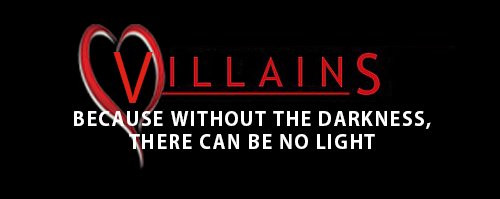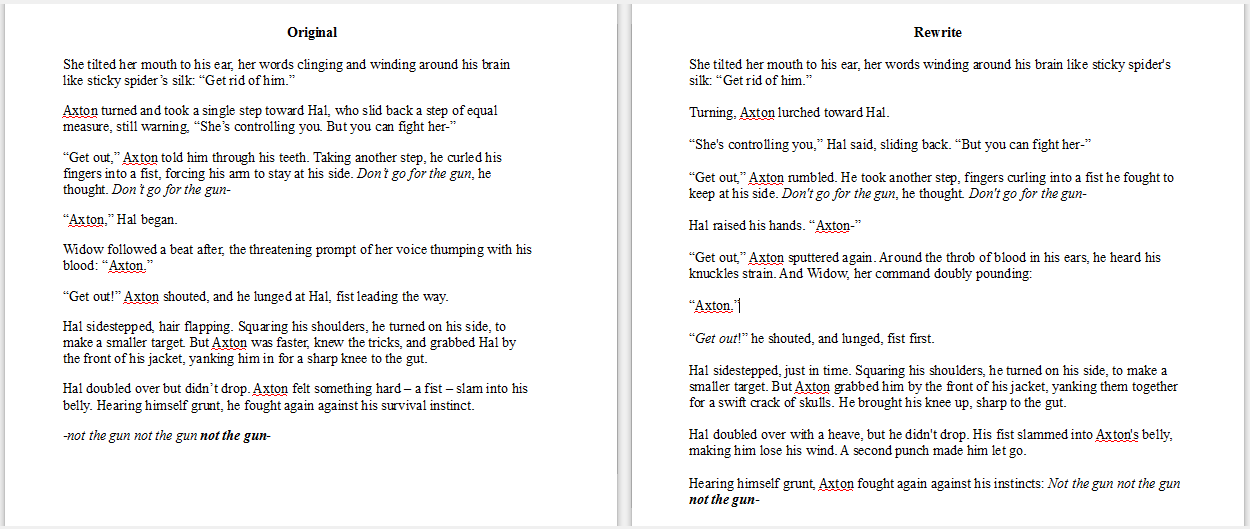by Mayumi-H | Aug 9, 2014 | Fearless, Finding Mister Wright, From Hell (A Love Story), Process
I got a question about my writing the other day:
Do you picture your characters in your head, do you hear their voices? Do they flesh out the more you entertain them and actually write about them? … Do you even start out with distinct picture of a character/situation that grabs your attention?
Generally speaking, I do have voices for all my characters. They often don’t change, either. And, it helps for me to speak out a conversation when it’s still in the plotting stages as well as after it goes down on paper. If something doesn’t sound natural to me, I spend a lot of time reworking it. Unless it’s plot exposition, though I still prefer that to have a spontaneous rhythm to it. 🙂
My sister has an uncanny audio memory. She’ll hear something once and remember it for years. Even inflections! I’m not that good, but I do think that reworking fiction conversations in my head over and over until they become second nature has helped my character voices a lot. One thing a few recent readers have commented on is that my dialogue flows really well, so I’m proud of that.
Characters become more real for me the more I work with them. I think that probably happens with all writers, though. And, it makes sense. We spend so much time in the heads and hearts of these people, we come to know them better than we know the physical people around us. Likely because we are privy to all the inside thoughts and turmoils. Personally, I project a lot into my characters, though I try to keep some of them to specific boundaries, because they all have different conflicts. (It’s hard to articulate.)
My inspiration often can be traced back to a single face/moment/voice, and, as time goes on, characters develop into their own people. For instance, Daniel (“Finding Mister Wright”) evolved from Hal (“From Hell”) by way of Aral (“Anywhere but Here”), who was a different side of Ross (“Fearless”). But, they share similarities in look, manners, and voice, which unites them in my head, and allows me to jump into their shoes with much more ease than I might be able to do otherwise. Fresh characters, as it were, take much more time for me to grasp. One thing that my husband mentioned to me when he read “Finding Mister Wright” was that the first two acts work really well, but the third needed more time with one of the late-intro’d characters. As it stands, she feels like a plot device, not a person, as the other characters do. I see his point, and I think it’s because when she was originally written, she was still one of those “new” characters. Of course, since then, I’ve written more with her, so, now, it’s a matter of going back and growing her into a person as fully-fleshed as the others.
Do you hear your characters’ voices in your head?
by Mayumi-H | May 31, 2014 | Persona 4 Fan Fiction, Process
Recently, I had an interesting dialogue with a writer friend on Twitter. He’d looked through my sci-fi/western/drama/romance and mentioned how “graphic” it is. I agreed that it’s probably “the most gleefully graphic I’ve let myself get in a long time.” Our conversation became more about writing side stories, but I kept thinking about why I’ve enjoyed working with this particular story so much these past few months. Part of that reason is that personal allowance to be graphic, an allowance I haven’t given for my more recent original fiction. There’s a lot of sex, because that’s a big part of the main character’s personal journey, but I’ve also loaded it with more action and violence than I’ve done in a while. Following that thought, I came to realize that it’s the villains who have made this story so much rollicking fun, for me.
I’ve read analyses that say the villain is the most important part of the story. I don’t exactly agree with that wording, because not every story will have a “villain.” In more precise – and also more amorphous – terms, I think it’s conflict that drives a story. I’ve talked about this a bit before, but I want to go into some more detail, here.
Every story needs some conflict, whether it’s external or internal. It’s nice to see characters get a breather or spend some happy time together, but a whole book about that would be rather boring. My drama stories tend to lack a villain in the traditional sense because the conflict usually arises from the hero himself. One of the common characterizations in my stories is that each main character is the principal architect of his or her own happiness…or their own misery. The decisions they make determine how they move forward or backward. Of course, I like development, so they usually set themselves – or get themselves set – on the right path, but the journey’s the fun part, anyway. That said, I hadn’t written a real villain in a long time.
Then, I decided to write a western.
I spent a lot of days reading old westerns, especially the serial stories of Elmore Leonard. The villains in those short stories were varied, violent, cunning bastards. And, even if they only made themselves known for a few pages, they had presence. I wanted my sci-fi shoot-em-up western to have that. Because, while the main character’s internal conflict was perhaps the most important part of the story, he would never be able to make that journey of self-discovery without someone pushing him on. Or shooting at him, as the case came to be.
I love writing my heroes. But, I’ve loved writing these villains, too, each one of them, for their own reasons. Red Widow because she’s a smart, sexy grifter, and deadly for that:
She’d saved her head with her hands, and pushed back against the wall to shove him off. One leg flew out behind her, connecting with Hal’s gut. He staggered with an oof! and she spun, another kick catching him in the ear.
Lohengrin, the Swan Knight, is insane. But his insanity is full of such self-righteous zealotry, his every line full of such grandeur, he makes a formidable foe:
Lohengrin swung his flame toward the popping drehlafette, and licking fire met stoic metal as the autocannon’s barrel slid into place. The muzzle spit its first round, and its second, when the Swan Knight gave a sudden strangled gasp.
Reilly is driven by a simple desire for revenge, but it’s changed him to the point of being unrecognizable even to his old sergeant:
Ax froze at the sight: a gleaming, golden horror of a man, almost seven feet tall with pylons for limbs and black enhancement goggles pressed deep into the puckered flesh of his face. In front of his left eye glowed a red targeting reticle, blazing in the dark. His chest was pockmarked with sparking holes and indentations from the drehlafette, but none of them slowed him down.
And Strenk, who’s probably my favorite of the lot, simply because he has no overarching goal or reason for his grittiness. He’s just plain ol’ nasty:
Strenk’s gaze filled his focus, cold and damning. “Open those pretty petals, tulip.” He dropped his free hand to his crotch. “I want to see if I’ll fit.”
All of these villains do horrible things, and I occasionally feel a bit scared at how easily some of their actions and dialogue have come to me. At the same time, though, I believe in art as a catharsis and unhindered outlay of our personalities, both the dark and light parts of it. Art is also a relatively safe way to explore the more dangerous demons within each of us. I don’t think I could ever pick up a flamethrower and point it at someone, but it definitely gets my senses tingling to imagine that and create it on the page. I suppose what this exercise has truly shown me is that my villains have as much to say about me as they do about my hero. Their danger, their brutality, the sheer ugliness they represent have made this story a crazy-fun ride, because for every dark, twisted action they throw at him, my hero grows a little bit stronger, a little bit wiser, a little more…heroic. But then, isn’t that what a villain is supposed to do?

What is it about your villains that you love? (Come on, admit it: there’s a part of you that loves ’em!)
by Mayumi-H | Jan 25, 2014 | Writing Projects
I try to keep my eyes on various writing challenges around the Web. Some I’ve bitten, while others I decided to forego, for one reason or another. Here are three I’ve done in the last few weeks.
1. Scottish Book Trust runs a 50 Word Fiction contest. The prompt for this particular one was “takes place at a birthday party.” As with all prompts, I like to go with my first gut reaction, and I try to keep the effort to no more than an hour, since I’ve got other projects to work on. I did end up submitting this one.
As a side note, I got the heads-up for this particular contest from the Limebird Writers’ Writing Competitions and Opportunities Digest from January 13, 2014. These are updated weekly, so take a look if you’re interested in any kind of challenge, big or small.
Momma’s Come Home
He’d wept her first day, as her baby smell filled his nostrils. Six years later, when he’d cradled her broken body at the icy roadside. And today, her tenth birthday, when her mother returned, leaving him with only the haunting squeak of an empty swing, and his aching, lonely tears.
2. Neeks’s The Short and the Long of it blog has been running a 3-word prompt fiction challenge. For this one, the words were “beginning, ending, life.” I didn’t stick perfectly to this one, and I felt it ran a bit long and rambling for the challenge, so I decided not to submit. Still, it was fun to look at somewhat familiar characters through a different lens.
Collateral Damage
In the beginning, he’d had a dream. A perfect dream of perfect logic, where choices led to consequences, actions forged results, research brought conclusions.
She’d been a perfect mentor for him, teaching him well with her professional dedication and insistence on probing background checks, thoughtful interviews, and detailed evidence reports. Together, their clearance rates went unmatched in the department.
It was a good life, if solitary. Because no woman ever lasted. None could do, not against the tugging allure of the next murder to catch, the next criminal to convict, the next opportunity to show his pompous, prideful captain how very, very good he was at his job.
“Because of me,” Susan always reminded him with a smirk.
“Because of you,” Luke always admitted, equally smirking.
A good life, if solitary. Until that one stakeout, when a shaft of streetlamp light shining through the window struck her face in just the right way to make him realize his clearance rate, his success record, his whole life was nothing at all, without her.
She’d drawn back from his kiss…for a moment. Then, with a sigh, she’d put her arms around him and joined him in his clandestine desire.
She was more mentor to him in that cramped hotel bed than for any case they’d ever worked, though she’d always told him he was a fast learner, and he made sure to prove that to her. Again. And again.
He should have just stopped then, because endings weren’t something he’d ever done well. But he’d wanted her to know all the foolish, short-sighted mistakes of his youthful heart had been only that: missteps taken too quickly, too recklessly, for suppressed want of the only woman who’d ever taken the time to understand and know him as anything more than a fact-checking drone.
“Susan,” he whispered before a kiss, the rest of the words from his heart ready and willing at the tip of his tongue.
Except this time, the cringing drift of her lips was more than a moment.
“This can’t ever happen again,” she muttered, and shifted up from the bed to dress. Professional. Solitary.
He never kissed her again, or held her in his arms, or made love with the same tender, honest feeling as he’d done that night.
Except in his dreams.
3. Lillie McFerrin runs Five Sentence Fiction, where, each week, she gives readers a one word prompt for inspiration. The prompt for this next one was “Moonlight.” I…don’t know why I didn’t submit this one. I think it was too late (each challenge runs for one week). I had fun writing it, though, which is mostly why it appears here.
Nobody Does it Better
He watches in a stare as her blades slice, hissing and precise, scattering snow in their wake. She leaps and lands, one slender line carving its cutting edge deep. Turning, now, she races through a cloud of breath straight toward him, moonlight kissing her white-as-ice smile, and he thinks, even if he dies tonight, he’ll go happily, for this glimpse of her grace set free.
“I’m not going to just let you watch,” she says, as he’s blinded a moment by a fountain of flakes. “Come skate with me.”
Most writing challenges seem to be designed for people who want to write but don’t have a work in progress or current project on their plate. For someone who is working on a standing story, challenges and contests can offer a distraction from the heavy thinking of a draft or edit. Or, they can be an excuse to procrastinate. No matter how you choose to view them (both perceptions are valid), I can’t deny they often let my brain venture into new areas I might not consider while working on a larger project. And, sometimes, I just like to procrastinate a bit, too.
Everybody needs a break now and again. What’s your favorite way to take a break from your writing? Do you try a challenge? Free write? Take a walk? Have a dance party?
by Mayumi-H | Nov 16, 2013 | Short Stories
This week, Lillie McFerrin’s prompt for her Five Sentence Fiction challenge is “LETTERS.” Hop on over to Lillie’s site to check out other worthy entries, or try your own!

John didn’t believe, because belief granted power, giving purpose, tooth, and fang – and more, with numbers – to what should have stayed amorphous clouds of mere ideas. He’d read the texts, studied the stories, but always kept his distance from the mysticism: stay back from the fire and don’t get burned.
His colleagues challenged him, of course, with goads and pranks designed to make him crack, but he never gave in. He even snorted in disdain at their latest joke: a leather-bound book delivered to his darkened doorstep by unknown courier, its hackneyed prophecies scribbled in umber ink. No one would call him a frightful fool, so he read, deeper into meaning and long into the night, until he decided he’d learned enough to state his dedication to the cause of his study and his own stoicism…when his heart stopped, and he stared, as the letters on the page moved.
My primary major at university was English Literature (with a double in Classical Studies – super-employable, that combo), but I also took a few classes in Theology, for which my institution was known. Beginner theology is pretty standard stuff: a lot of translation and interpretation, with a heavy dose of well-chronicled history, believe it or not. Throw in some sociology and cultural studies, and it becomes more of a snooze-fest. I did have one class, though, that both totally sparked my interest in the field while at the same time completely freaking me out. It was a guest lecture by one of the Jesuit brothers who was a rather renowned demonologist (yes, they are real; William Peter Blatty supposedly consulted with this priest in regards to his novel, The Exorcist). He stood in front of a class of about fifteen students and told a story very similar to the one I’ve written above: about being up late one night in his seminary room or wherever, reading some so-old-it-farts-dust manuscript, and seeing the letters on the page move. Not just waver, but actually f—ing shift on the page. It remains perhaps the most awesome and most frightening thing I’ve ever heard…because, whether it really happened or it was just his tired eyes playing tricks on him, he believed it.
I remember wanting so badly to experience this sensation. So, I went to the university library and tried to make it happen.
 The university library was a converted cathedral, a real Gothic throwback in the middle of the city. The inside is very modern, more so now than even during my days there, but when you looked up at that monolith of a central tower from the street, especially at night, it made for an imposing sight. In the stacks, it got even worse:
The university library was a converted cathedral, a real Gothic throwback in the middle of the city. The inside is very modern, more so now than even during my days there, but when you looked up at that monolith of a central tower from the street, especially at night, it made for an imposing sight. In the stacks, it got even worse:
 Cramped quarters and rickety spines all around. But, I remained determined. If anything weird was going to happen, it was most likely going to happen in the library. I mean, we had a copy of the Malleus Maleficarum, for pity’s sake! So, with the Dewey codes for the demonology texts scribbled in an uneasy hand on the index card in my fingers, I made my way up to the Theology stacks. I remember feeling giddy as I scanned the guide numbers on the shelves. And then, walking halfway down a deserted aisle, the numbers on the card and the numbers on the shelf matched up.
Cramped quarters and rickety spines all around. But, I remained determined. If anything weird was going to happen, it was most likely going to happen in the library. I mean, we had a copy of the Malleus Maleficarum, for pity’s sake! So, with the Dewey codes for the demonology texts scribbled in an uneasy hand on the index card in my fingers, I made my way up to the Theology stacks. I remember feeling giddy as I scanned the guide numbers on the shelves. And then, walking halfway down a deserted aisle, the numbers on the card and the numbers on the shelf matched up.
I stared at that book a long time. I don’t remember the title or the author, but I do remember it had a brown spine, with that gold leaf lettering that always seemed so popular on highfalutin’ academic texts. It looked relatively untouched, too. I remember that, as well. Because I thought, Why is this book just sitting here, as if in wait? (I was pretentious enough at that stage to have thought the phrase “as if in wait.”)
Now, I’d like to say I picked up that book and nothing happened…or, that something did happen. The truth is, I pulled an awkward teenager move and picked up the book three titles to the right and muttered under my breath something like, “Oh, this is the book I’m looking for,” even though no one else was about. Years on, though, I often consider that moment of standing in the stacks: what could have been or what I might have learned. The power of belief, if you will.
It’s a marvelous thing.
Did you work in any writing challenges, this week? Did you challenge yourself some other way? (You don’t have to have become a demonologist.) Let me know!
by Mayumi-H | Oct 19, 2013 | From Hell (A Love Story), Process
A few weeks ago, I put up on the blog an excerpt of a fight scene I was having trouble with. Based on your feedback, I made some changes to the text, ones I hope create a smoother experience for the reader. Do they or don’t they? I’ll let you be the judge. (Clicking the image below will let you read both the original and updated versions, the latter of which I posted for readers just this past week, coincidentally enough.)

I like to think the update works better within the confines of the chapter…but I’m never sure. Because working from feedback has always been difficult, for me.
I like getting critique, especially if it can help my story become better: tighter, clearer, more effective. But, I spent a large part of my early writing life aping others. My sister first, then my favorite published authors. To this day, when I read books while I’m in the middle of writing a story, I find myself incorporating others’ techniques and quirks. It’s been said imitation is the sincerest form of flattery. Though, when does imitation go too far, and we lose our own voice to the art?
I like my voice. It varies from story to story (admittedly, less successfully when I drag out a story for too long), but I like thinking of my stories as my own. When I get critiqued – especially when it’s good critique – I always hesitate. “If I change this phrase to x, will I sound more like A? If I edit that section to y, is my voice becoming like B?”
Even though I may not be destined for publishing, I still want my story to be the best it can be. So, in some cases, writing like favorite author A or insightful reader B might be better. But, does that make a story less mine, less me? I don’t know.
In the face of solid critique, how do you remember to keep to your own voice?






Recent Comments
The Real Person!
Author Mayumi-H acts as a real person and passed all tests against spambots. Anti-Spam by CleanTalk.
The Real Person!
Author Mayumi-H acts as a real person and passed all tests against spambots. Anti-Spam by CleanTalk.